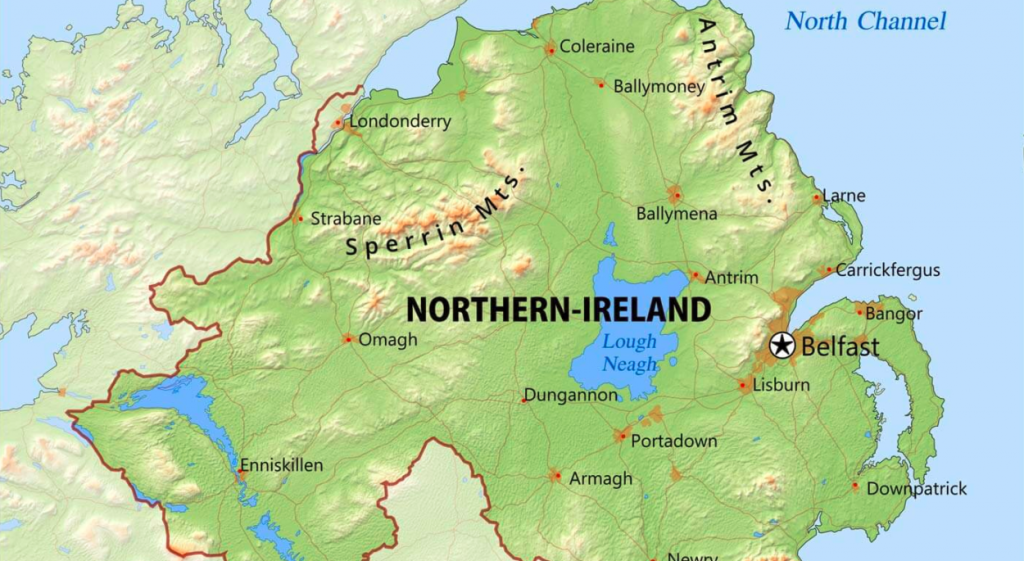Northern Ireland, Backstops and Law

So in my last blog I explained that “the UK has to choose between it’s obligations under the Good Friday Agreement, or it’s territorial integrity, or it’s desire to leave the Single Market and Customs Union.” After some conversation I had around this bit I thought it was worth expanding on.
A few weeks ago I had an entertaining and interesting exchange with a pal Cllr Glenn Jordan, on the other side of the political divide from me, about the implications of our various commitments in international law.
Glenn very much wanted to have some process for weighing up the UK’s various obligations under the Good Friday Agreement and the WTO to see what takes precedence believing that this would clear things up and make for an easier solution to the Norther Ireland backstop.
Indeed this is of course how domestic law, in a unitary system like a nation state happens. Because all law is part of the same ultimate legal system; with a final arbiter (In our case the Supreme Court) a big part of how the legal system works is weighing up different, competing obligations and rights to see what ultimately takes precedence. Some areas of law, like Human Rights are *principally* about the weighing of competing rights where they become mutually exclusive.
International law is quite, quite different. There is no equivalent of the “Supreme Court” able to hand down binding judgements in where the terms of various treaties clash (and indeed I imagine most who favour “leave” would be horrified at the prospect of such a supranational authority).
Bilateral treaties, and membership of international organisations usually have absolutes. The parties either agree to abide by them, seek agreement to change the terms of the treaty/organisation, or if they won’t they have to withdraw or leave.
In respect of Northern Ireland there are two obligations the UK has that are pertinent. The Good Friday agreement and our (and Eire/EU’s) membership of the WTO.
The GFA, put incredibly simply (not the place for a detailed analysis) allowed for those residents of N.Ireland who felt British to be British for all purposes, and those who felt Irish to be Irish for all purposes (this is a huuuuuuuuuuge simplification). Part of the underpinning of this is that the Republic of Ireland changed her constitution to formally renounce a territorial claim on Northern Ireland; and both Eire and the UK agreed to implement no border between the Republic and Northern Ireland.
This was underpinned by our shared membership of the EU (or more accurately our membership of the Single Market, and Customs union) which made such a borderless settlement possible.
Now it is very important to note that this obligation is on both parties; should one of the parties seek to change the underlying situation AND maintain their obligations under the treaty then it is incumbent upon them to propose a solution that allows this (more in that later).
The WTO requires it’s members to properly enforce their borders in respect of Trade. Another misnomer about this is enforcement stuff. I see a lot of leavers posting memes and suchlike saying “Senior WTO Officials confirm they won’t tell UK to enforce border”.
This is nonsense because the WTO isn’t a unitary legal authority. What happens with enforcement is that other countries where they believe you are in breach of the rules with can impose sanctions upon you. The reality is neither the Eire/EU or the UK would in practice not police a WTO border. The UK Attorney General recently made it clear that this is something the UK would have to do in a No Deal scenario.
What this all means is that if the UK wishes to fufil it’s obligations under the Good Friday Agreement, and virtually the entire political class in the UK claim that they wish to do this; then it limits the options available to the UK in terms of departure from the EU (or more pertinently the Single Market and Customs Union).
Assuming we stick to the GFA then the choice has always been that we either accept a border in the Irish Sea, with Norther Ireland in effect remaining in the Single Market and Customs Union; or a very close relationship with the EU in which the whole of the UK remains in the Single Market and Customs union.
To be clear this is eminently possible certainly from the EU’s side. They would be happy with a N.Ireland specific backstop (indeed it was the UK that rejected this as it crosses one of our redlines) or with the UK joining EFTA/EEA and Customs Union.
In fact, one of the things lost in all the huffing and puffing over the backstop since November is that it was the UKs idea. We suggested the current backstop as a Northern Ireland specific one crossed our redlines.
The problem the country has is our leaders, and Brexiteers, have not been honest about what the options are; and have complicated this with damaging and contradictory red lines.
The choice has always been that we can have any two of honouring the GFA, maintaining the territorial integrity of the UK and leaving the Single Market and Customs union. But we cannot have all three.
The backstop was a clever way of deferring the reality of this choice to a point in the future but that remains the choice we have, have always had, and will always have.
Withdraw from the GFA, or if not a Border in the Irish Sea, or if not that then UK stays in Customs Union and Single Market. As with so much of Brexit people have been promised easy simple solutions to complex often impossible situations.
This one is quite simple, even if it is unpalatable to people who have promised unicorns. And this choice will not go away, and it won’t change.










